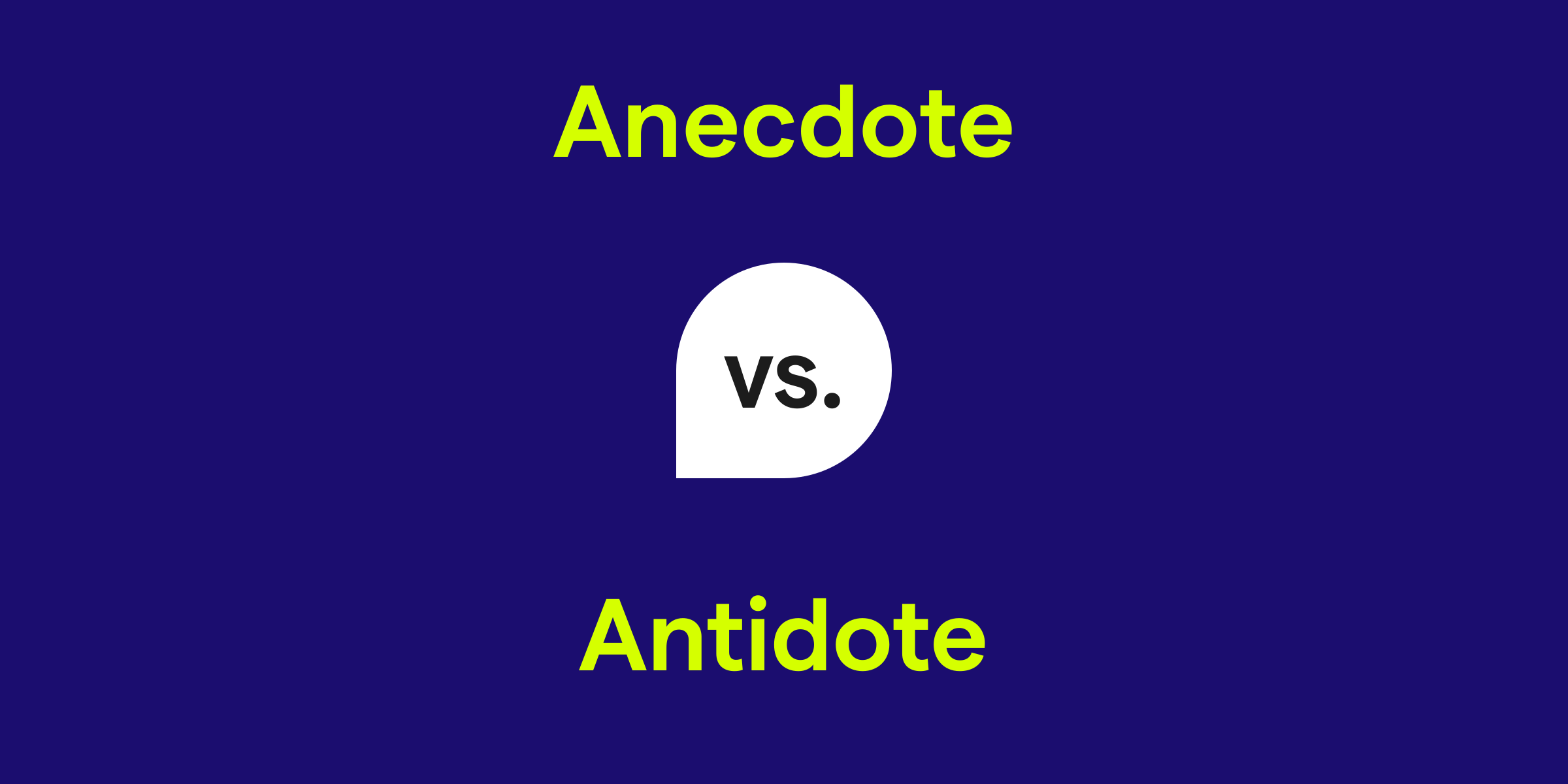Anecdote vs. Antidote: What's the Difference?
An anecdote is a brief, amusing, or interesting story about a real incident or person, often shared to illustrate a point or entertain. An 'antidote,' on the other hand, is a remedy or medicine used to counteract a particular poison or harmful effect. While anecdote is related to storytelling, antidote is associated with medical treatment.

How do you use the word anecdote in a sentence?
Use anecdote when recounting a short and often funny story that sheds light on a person's character, an event, or a situation. It's typically delivered to entertain, make a point, or spark a conversation with a personal touch.
Examples of anecdote in a sentence
- He shared an amusing anecdote about his first day at work that had everyone laughing.
- Her speech was filled with personal anecdotes that made her message resonate with the audience.
- The book is a collection of historical anecdotes illustrating life in the 18th century.
How do you use the word antidote in a sentence?
The word antidote is typically used in the context of medicine or toxicology. It refers to any substance that can neutralize or prevent the dangerous effects of a poison. Antidote can also be used metaphorically to describe something that counters or prevents an unwanted or negative situation.
Examples of antidote in a sentence
- Snakebite victims often survive due to the timely administration of the appropriate antidote.
- Laughter is often considered the best antidote to stress.
- The company's new policy served as an antidote to declining employee morale.
Anecdote and antidote definition, parts of speech, and pronunciation
Anecdote definition:
An anecdote is a short, entertaining story about a real event or person, often shared to make a point or convey a moral.
Anecdote parts of speech:
Anecdote pronunciation:
Phonetically, anecdote is pronounced as /ˈanɪkˌdoʊt/.
Antidote definition:
An antidote is a substance that can counteract a form of poisoning, or more broadly, anything that relieves or prevents undesirable conditions.
Antidote parts of speech:
Antidote pronunciation:
Antidote is pronounced phonetically as /ˈæntɪˌdoʊt/.
An anecdote is a short, entertaining story about a real event or person, often shared to make a point or convey a moral.
Anecdote parts of speech:
- Noun: His anecdotes about his travels captivated the listeners.
Anecdote pronunciation:
Phonetically, anecdote is pronounced as /ˈanɪkˌdoʊt/.
Antidote definition:
An antidote is a substance that can counteract a form of poisoning, or more broadly, anything that relieves or prevents undesirable conditions.
Antidote parts of speech:
- Noun: Doctors administered the antidote to the patient who ingested the poison.
Antidote pronunciation:
Antidote is pronounced phonetically as /ˈæntɪˌdoʊt/.
Anecdote vs. antidote in a nutshell
While both anecdote and antidote hold adaptive value in their respective contexts, they cater to entirely different needs. An anecdote enriches our conversations and connections through relatable stories. In contrast, an antidote provides critical medical intervention against toxins. Remembering this distinction is key: anecdotes are shared during storytime, whereas antidotes are sought during crises.
Get AI Writing Assistance Wherever You Type
Make sure your vocabulary is on point and every punctuation mark is in the right place, no matter where you’re working. Grammarly works across more than 1 million websites and apps so you can improve your writing without copying, pasting, or breaking focus.

More Commonly Confused Words
Interest piqued? Pore (not pour) over other commonly confused words to help your writing reach peak (not peek) performance.